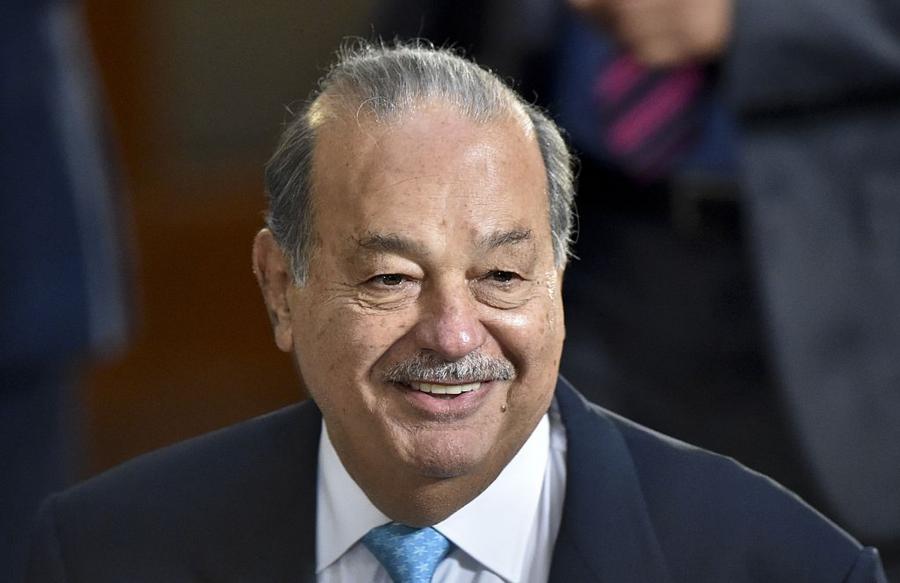Carlos Slim Helú, the 71 year-old billionaire has been described as both the one-time richest man in the world as well as a self-made billionaire. Even the most self-made of the so-called "self-made billionaires" has plenty of help to get where they are, and Slim has been up front and clear about who he credits with his massive success in the world of business: His father, Julián Slim Haddad.
Julián Slim worked as the owner of a dry goods store while Carlos Slim grew up, in addition to a few real estate holdings in downtown Mexico City. Forbes reports Slim's recollections of his father's encouragement of good financial habits. Young Slim's five-peso weekly allowance allowed him to learn how to save money, thanks to a savings book in which he kept track of his expenditures and other financial activities.

YURI CORTEZ/AFP/Getty Images
Slim and his father would go over these savings books together, and the experience was so formative that according to a story in Fortune about the businessman he still kept some of them in his office. Slim's father taught him financial lessons that guided him throughout his rise to become one of the richest people in the history of the world, with one-line maxims like "Money that leaves the business evaporates" and "All times are good if you work in the right way" being two that Slim remembered in a New Yorker story.
Slim's knack for money began at an early age, and it's not hard to see why he credits his father for having encouraged those proclivities. He also told The New Yorker he had his first checking account at age 10, and at 12 he started acquiring shares of Banco Nacional de México. Then, at 15, he was an official shareholder at the bank, as he recounts in his book Managing New Ventures: Concepts and Cases in Entrepreneurship. In another one of his books Slim recounts how his father's financial advice guided him through Mexico's extreme economic downturn in the early 1980s:
"I learned from my father that you continue to invest and reinvest in your businesses, including during crises."
That advice led Slim to go on a buying spree when the Mexican economy was at its lowest point since the Great Depression, a move which in turn led to the accumulation of most of his massive fortune.
/2015/05/slim.jpg)
/2013/09/GettyImages-463296502.jpg)
/2019/06/GettyImages-463296502.jpg)
/2009/09/carlos.jpg)
/2021/05/GettyImages-3266444.jpg)
/2014/01/GettyImages-51982609.jpg)
/2020/07/mlp.jpg)
/2010/01/Deryck-Whibley.jpg)
/2020/07/jl.jpg)
:strip_exif()/2020/06/taylor.png)
/2010/01/GettyImages-183679600.jpg)
/2022/10/Anne-Murray.jpg)
/2014/09/Kim-Delaney.jpg)
/2009/11/Tim-Duncan.jpg)
/2023/01/lance-armstrong.jpg)
/2021/04/Sara-Gilbert.jpg)
/2025/03/Kelli-Ferrell.jpg)
/2010/05/Jaleel-White.jpg)
/2013/02/Walt-Frazier.jpg)
/2011/04/Mike-Fisher.jpg)
/2023/05/brian-den.png)
/2021/03/Morgan-Wallen2.jpg)
/2020/03/kid-rock.jpg)